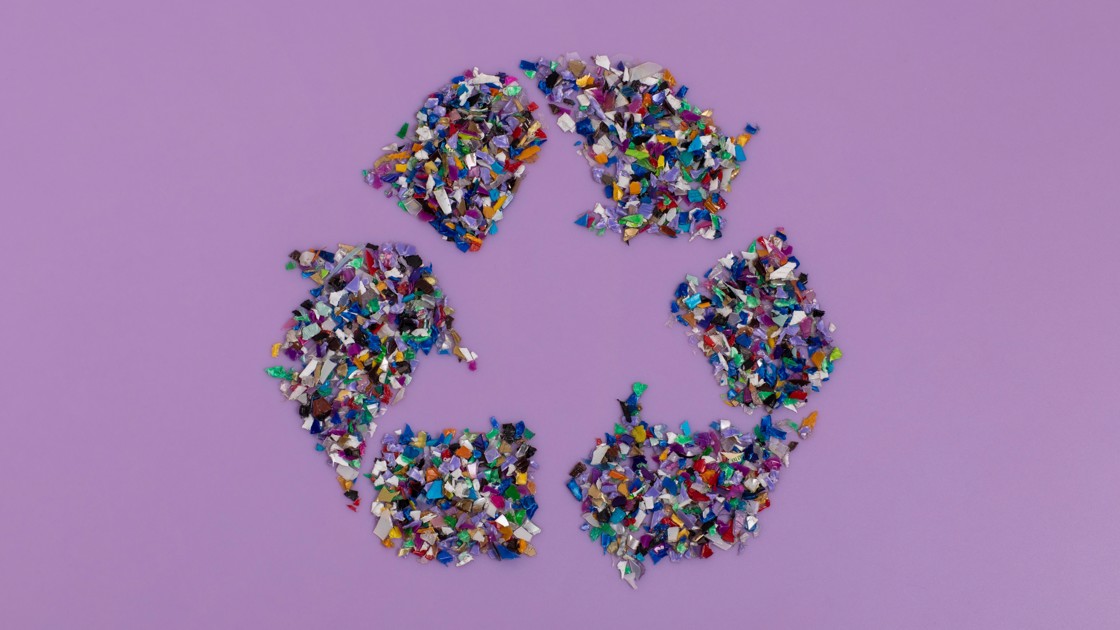Decarbonising the plastics industry entails a drastic transformation and it must be ensured that workers are prepared for the changes ahead.
The European Union has committed to climate neutrality by 2050. For the plastics industries, achieving this requires drastic changes. Decarbonisation of the first production stage, alternative feedstocks, increased circularity and Carbon Capture and Storage or Use all have a role to play.
The plastics industries employ around 1,870,000 people in Europe. Plastic packaging extends food durability and hence prevents food waste. Plastic products ensure hygiene and safety. They are lighter than other materials and therefore, for example, reduce transport energy requirements.
The first stage of most plastic production is the cracking of naphtha in steam crackers. Natural gas is burnt, needing huge amounts of energy. To notably decarbonise this process, it will have to be electrified – and depend on a large and stable supply of renewable electricity. The electrification or conversion to other feedstocks requires facilities to be entirely converted, or new facilities to be built. This will require considerable investment and the timely reskilling of workers. If entirely new facilities are to be built, this is likely to take place at other sites rather than the current ones.
Luc Triangle, industriAll Europe General Secretary:
“Decarbonising the plastics industry entails a drastic transformation and it must be ensured that workers are prepared for the changes ahead. It is essential that investment and construction go hand in hand with plans and collective agreements for the workforces, covering, for example, employment at the new sites, training or job-to-job transitions. Collective bargaining is key.”
However, more than half of the CO2 is embedded in the material itself and is released when incinerated at end of life. The most promising pathway to a climate neutral plastics industry is to drastically increase circularity.
A move towards circularity requires thinking about longevity and recyclability as much as functionality, already from the design stage of a product: separability, component standardisation, reduction in the number of different materials used, etc.
Luc Triangle: “IndustriAll Europe calls on all actors to step up investment in innovation and to review the relevant vocational training content and university curriculars. It is essential to make innovative approaches practically applicable, as fast as possible. We appeal to scientific institutions and industry to cooperate from an early stage to prevent any delay in the marketing of solutions. Policy makers have a role to play: they can enable cooperation, fund research and use their power as influential customers.”
Mechanical recycling is the only form of plastics recycling that is currently used on a commercial scale. Sorted plastic waste is ground into plastic granulates that can be used by the plastic processing industry. But only up to 10% of plastics is mechanically recycled. To increase this share, changes in design are needed, and collection and sorting improved. During chemical recycling, plastics are broken back down into their chemical constituents, which are then used to make new plastics. The advantage: products can be of the same quality as products made from virgin material. IndustriAll Europe supports the further development and commercialisation of chemical recycling as an essential tool to increase circularity. However, the process is energy intensive; sustainable chemical recycling therefore depends on a large and stable supply of renewable electricity. To operate profitably, recycling plants need huge amounts of waste.
IndustriAll Europe’s key demands:
- A transition pathway for the plastics industry with attention to infrastructure, description of the roles of all actors, and a thorough assessment of regional impacts and remedies
- Mapping of future skills needs and skills mismatches and plans for re-training and upskilling programmes derived therefrom
- Funds to support job-to-job transitions
- Clear and harmonised legislation on waste shipment, recycled content, chemical recycling, etc.
- Support for research, innovation and commercialisation of chemical recycling, biodegradable plastics, use of alternative feedstock
- The incentive to use recycled products that have a better carbon balance than raw materials
- A ban on landfill and the export of plastic waste to third countries, as well as the establishment and continuous development of (uniform) deposit systems
- Strong social dialogue to accompany change: workers must have the right to co-decide the transition in their workplaces and region
IndustriAll Europe position paper 'Towards a Decarbonised Circular Plastics Industry in Europe': EN, DE, FR
